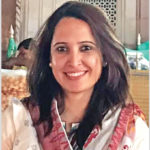International Day Commemorating the Victims of Acts of Violence Based on Religion or Belief
https://www.facebook.com/iclrs.org/videos/396687767701156/UzpfSTE2MTI2MjAwMjI6MTAyMTcxMjQ2OTU0NjIxNjQ/
https://www.facebook.com/iclrs.org/videos/396687767701156/UzpfSTE2MTI2MjAwMjI6MTAyMTcxMjQ2OTU0NjIxNjQ/
Elizabeth Clark, Associate Director of the International Center for Law and Religion Studies, joined panelists Robin Fretwell Wilson, Roger and Stephany Joslin Professor of Law at the University of Illinois College of Law; Matt Sharp, Senior…

This guest post is by Farzana Mahmood, Barrister, Executive Director, Bangladesh Manobadhikar o Poribesh Andolon. She was a member of the Inaugural Class of the ICLRS Young Scholars Fellowship on Religion and the Rule of Law, held in Oxford (2018).
Bangladesh is a multi religious country where the Muslim population is officially estimated at around 90.5 per cent, Hindus 8.5 per cent, followed by Buddhists (0.6 per cent) and Christians (0.3 per cent) and others (0.1 per cent). The Constitution protects the equal status of all religion, ensures equal rights of every citizen irrespective of his religious identity, affirms secularism to ensure non-discrimination on the basis of religion and ensures freedom to practice any religion.
The bitter experience under the disguise of religion during the partition of the subcontinent, the regime of Pakistan and finally in the Liberation war of 1971, encouraged the Constitution makers and the people of Bangladesh to stay firm with principles of secularism and freedom of religion. Maulana Abdur Rashid Tarkobagish on 30th October 1972 gave his observations on secularism in the Parliamentary Assembly debate (Parishad Bitorko) and stated that under the name of Islam the barbaric Pakistani soldiers mercilessly killed Bengalees on 25th March of 1971 (Speech on introduction of constitution Bill. Source- minutes of the first meeting of the second session of National Assembly October, 1972, Parishad Bitorko (Assembly Debate), Dhaka: GOB).